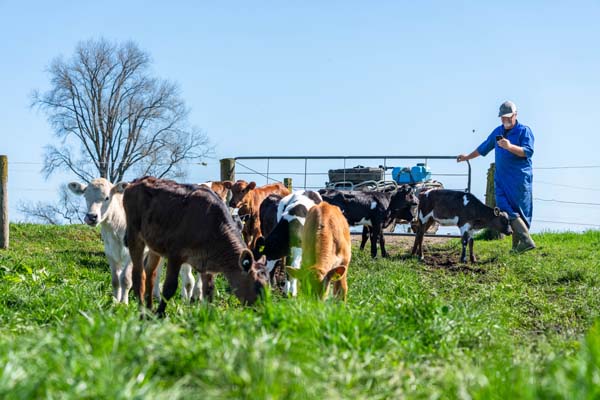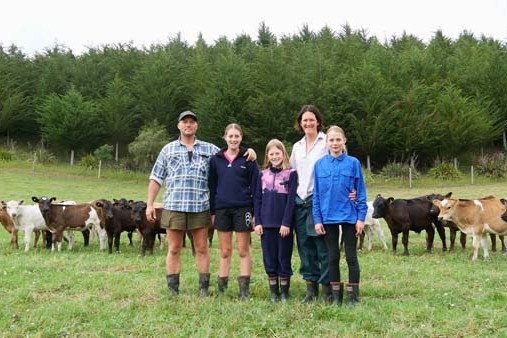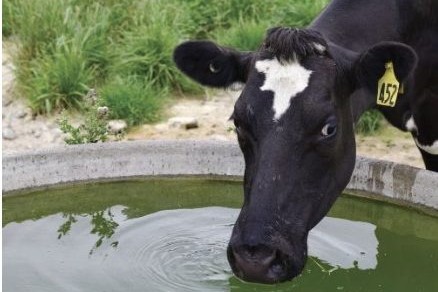Calves raised on whole milk are at the heart of the Pearl Veal operation. Karen Trebilcock reports.
New Zealand Pearl Veal calves are raised without grain, fed only fresh, whole milk and high-quality hay before being introduced to lush pasture.
Co-founder Alan McDermott said nearly 1000 calves had been raised during the past two years for the veal contracts and one farmer was so impressed with the system he had changed to rearing all his calves this way.
“Trial work with AgResearch in Palmerston North published in 2000 showed the rumen was slightly smaller when the calves were fed whole milk without grain, compared with calves fed CMR and meal,” Alan said.
“However, the hind gut, the intestines, were much more developed.
“It’s the hind gut which is important for a healthy calf.”
The calves were weaned at 12 weeks and had achieved higher liveweight by weaning than normal. They maintained that liveweight advantage through to slaughter.
“The calves fed meal in the study never caught up to them.”
Pearl Veal calves are fed 500 litres of milk, peaking at eight litres a day divided into two feeds.
“We crank them up and then ease them back down again.
“We’re doing it the way nature intended. It’s back to basics,” he said.
“Why send whole milk to the factory to have many components removed to create a milk powder that gets bagged up and then trucked back to the farm to be reconstituted to be fed to calves, but which is missing some of the components that are designed for calves?
“Ours is an animal and climate-centric approach. It may not cost less, depending on the cost of milk or meal, but it delivers the best possible calf, not just an acceptable calf.”
He said Pearl Veal was working with pioneering farmers and leading chefs to create premium veal and to demonstrate just how delicious well-raised veal could be.
“We do need to derive a high price for our veal to cover this cost, but Pearl Veal is a special product.”
Pearl Veal calves are also not given any type of coccidiostat.
“Coccidiostats used in meal are ionophores which is an antimicrobial. In America it’s classed as an antibiotic, and we don’t want to feed antibiotics to animals as a preventative.
“Our farmers ensure calves receive plenty of good quality colostrum, have good hygiene, good quality fresh pastures and they make sure the calves are strong and healthy so they can fight off any problems.
“We haven’t had any issues yet with any of our calves, but recognise this approach may not suit all calf rearing systems.”




